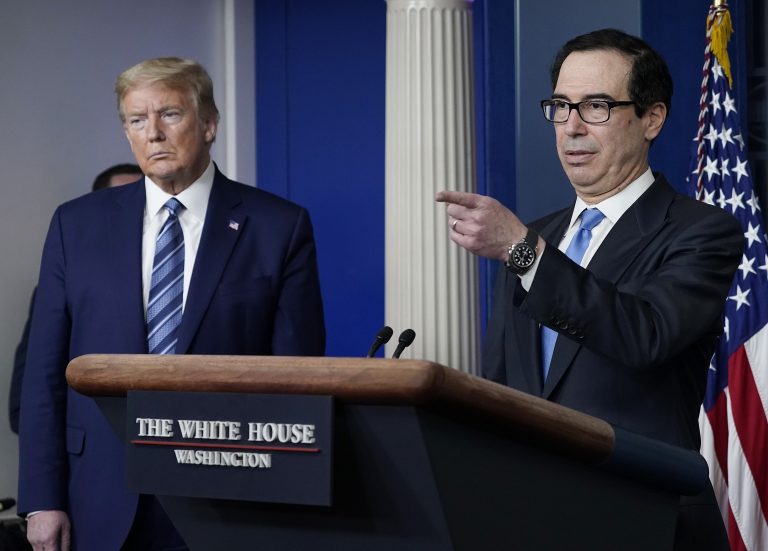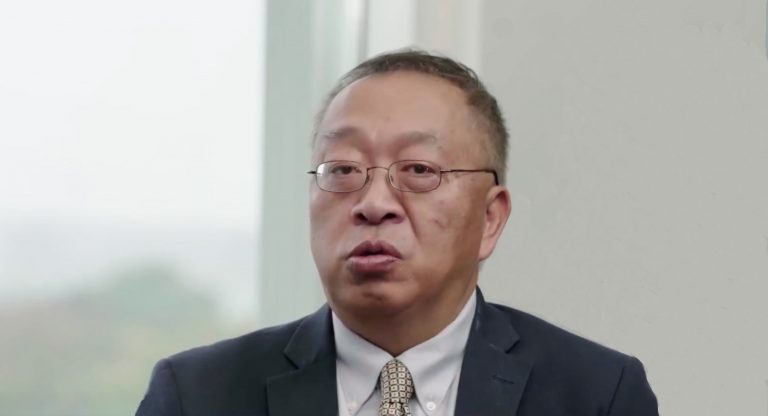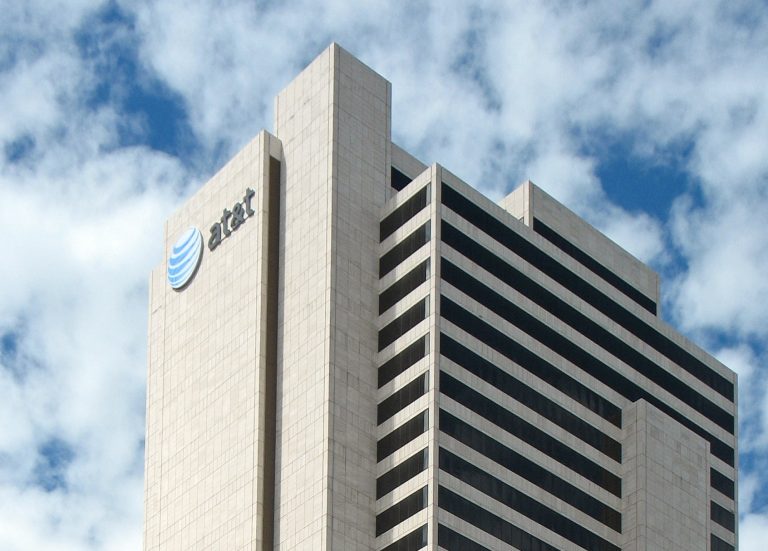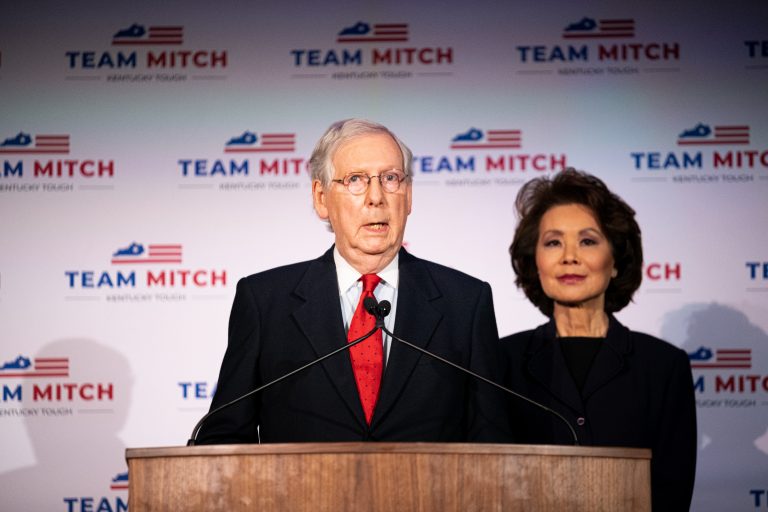Joint statements posted to Twitter on Dec. 18 by U.S. Treasury Secretary Steven Mnuchin and Secretary of State Mike Pompeo have denied claims that the U.S. Treasury Department is attempting to “water down” a November executive order by President Donald Trump barring Americans from investing in companies suspected of having ties with the Chinese Communist Party’s (CCP) military, the People’s Liberation Army (PLA).
Both the Financial Times (FT) and The Wall Street Journal made claims there was fierce internal disagreement in the federal government. However, only “people familiar with the matter” were cited in the articles.
“Addressing the Threat From Securities Investments That Finance Communist Chinese Military Companies,” issued by President Trump on Nov. 12, describes the threat posed by the CCP as “increasingly exploiting United States capital to resource and to enable the development and modernization of its military, intelligence, and other security apparatuses, which continues to allow the PRC to directly threaten the United States homeland and United States forces overseas.”
The Executive Order specifically singles out Communist China as “developing and deploying” weapons of mass destruction, advanced conventional weapons, and “malicious cyber-enabled actions.”
The Order takes effect on Jan. 11, 2021 and prohibits any investment in publicly traded securities or derivatives of “Communist Chinese military compan[ies].”
Success
You are now signed up for our newsletter
Success
Check your email to complete sign up
President Trump’s action does permit transactions that are solely to divest in either the whole or portion of a position in a PLA-linked company, however.
“Communist Chinese military company” is defined in the Order as being any person that the Secretary of Defense either alone or in consultation with the Secretary of the Treasury has listed as a PLA company.
Index providers MSCI and FTSE Russell removed several Chinese companies from their indices earlier in the week. However, according to FT, the State Department cites a minimum of eight subsidiary Chinese companies still included in the instruments.

While FT’s article claims the Treasury Department’s resistance has met with “furious opposition” from the Pentagon and State Department, both the National Security Council and Treasury Department declined to provide comment to the publication while the Pentagon ignored their request for comment outright.
Secretary of the Treasury Steve Mnuchin refuted the allegations on Twitter, saying that “there is no disagreement between @SecPompeo and me regarding the implementation of the President’s Executive Order. We are coordinating closely on an interagency basis.”
The sentiment was reciprocated by U.S. Secretary of State Mike Pompeo: “There is no clash between Secretary @stevenmnuchin1 and me. We are simply working to resolve interagency mechanics of an important executive order.”
Trump’s Order requires Mnuchin to consult with the Secretaries of State and Defense, as well as Director of National Intelligence, John Ratcliffe to carry out the Order.
The Pentagon currently designates more than 35 companies as being either owned or controlled by the PLA. Telecom giants China Telecom and China Mobile are on the list, along with a manufacturer of surveillance equipment who currently offers products at the retail level in Canada, Hangzhou Hikvision.
On Dec. 3, China National Offshore Oil Corp (CNOOC), who purchased Canada’s Nexen energy company for $15.1 billion in 2013 and controls an entire office building in downtown Calgary, along with Semiconductor Manufacturing International Corp. (SMIC) were added to the Pentagon’s blacklist.
The State Department released a fact sheet on Dec. 5 listing multiple PLA-linked companies, including Huawei, the CCP’s poster child for replacing Nokia and Erikson’s dominance in the cellular communications sector in the industrial and technological world’s 5G roll-out.
The Fact Sheet also singled out four “Communist Chinese Military Company Affiliates” listed on the New York Stock Exchange: China Mobile Communications Group (NYSE: CHL), China National Offshore Oil Corporation (NYSE: CEO), China Telecommunications Corp. (NYSE: CHA), and China United Network Communications Group Co. (NYSE: CHU).
The Thrift Savings Plan I Fund Benchmark Study (pdf) was also cited in the fact Sheet, revealing that the majority of U.S. pension funds rely on the MSCI Index as their investment guide, including the 401k plans of all 10 of the largest publicly traded companies in the United States, all of the top 10 federal contractors, all 20 of the largest state pension plans, and all six of the “largest target-date mutual fund providers”, and “numerous” insurance funds and university and college endowment funds.
The $10.7 trillion invested in these private pension plans are all covered by the Employee Retirement Income Security Act (ERISA).
RWR Advisory Group published proprietary research which points out that the MSCI and FTSE indexes are also used as benchmarks for many Exchange Traded Funds (ETFs) with international exposure.
The research also lists more than 140 companies who will be affected if all public subsidiaries and affiliates of the CCP’s PLA are included in the crackdown.
Follow us on Twitter or subscribe to our email list













